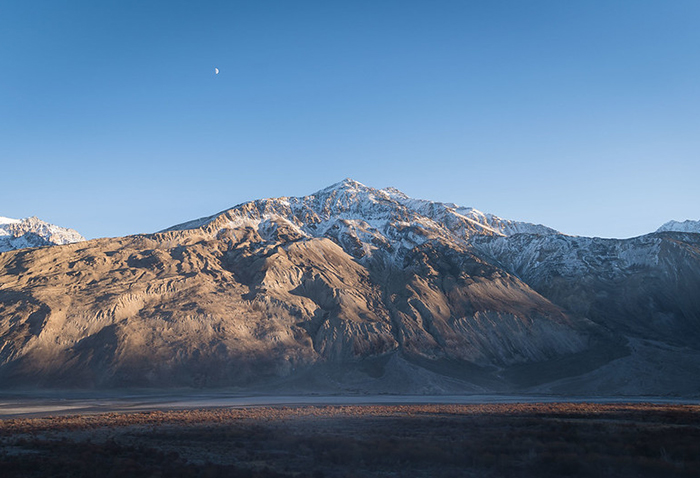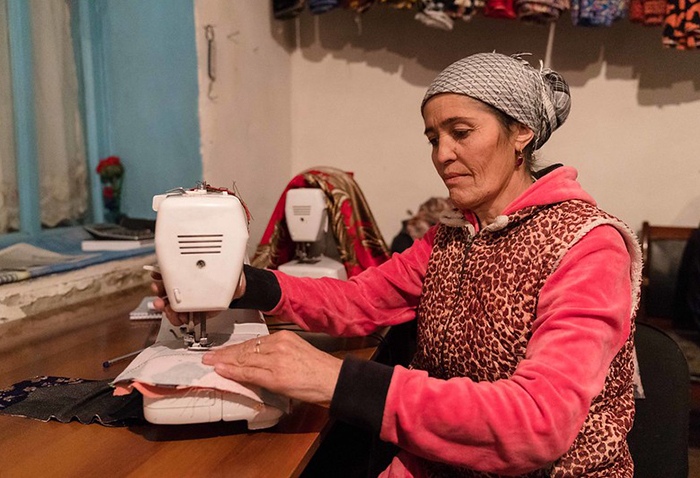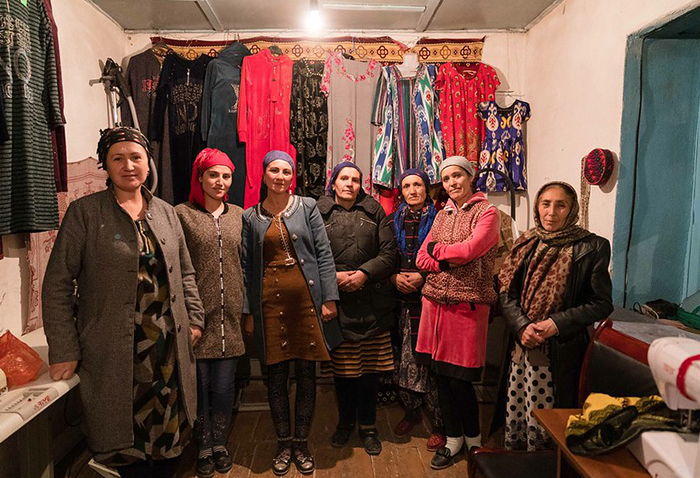This story is authored by Hazel Correa, senior regional development outreach and communications coordinator at USAID/Central Asia, and is reposted from USAID Central Asia’s Exposure blog.

Roziyamo Kabirova lives in a remote village in the scenic Wakhan Valley, in Ishkoshim district of Tajikistan that borders Afghanistan and Pakistan. She enjoys the unspoiled natural beauty of the valley. For most people, Vrang village is very isolated and disconnected from the rest of the world. They don’t have the internet and phone lines are often spotty.
But Roziyamo wouldn’t trade her life for city comforts. She begins her day at the break of dawn, makes breakfast for her family of six, tends to her little garden, and then takes her cattle to open pastures to let them graze freely.
By 8 in the morning, she’s at her workplace, where she leads a women’s group that usually sews school uniforms and other items of clothing for a living. But these days, Roziyamo and her group of nine seamstresses are sewing cloth face masks instead. While there have been no cases of COVID-19 in Vrang village to date, Roziyamo believes that she and her community need to be prepared for it.

Stopping the spread
“I first heard about COVID-19 on TV in early March and then again through neighbors. But back then, we didn’t think it would come to Tajikistan. Sadly, by April, the Government declared cases in our country too,” said Roziyamo.
When the Government sent out a call for organizations to produce masks for the country’s use, Roziyamo and her team wanted to pitch in. “We didn’t know how to make face masks or have the right fabric. But we knew masks [would] help with stopping the spread of the virus so we wanted to learn how to make them,” shared Roziyamo.
With USAID’s assistance through the Thrive Tajikistan: Partnership for Socio-Economic Development program in partnership with the Aga Khan Foundation, Roziyamo’s team received a grant, the training to produce face masks according to international quality standards, and materials like fabric, threads, and elastic bands. Thrive Tajikistan also helped Roziyamo get a license from the Government of Tajikistan to sell the masks they produce to the general public.

Meeting the demand for affordable face masks
Thrive Tajikistan partners with communities across 16 districts in Khatlon and Gorno-Badakhshan regions along Tajikistan’s border with Afghanistan. The USAID-supported program helps people improve their quality of life by catalyzing small and growing businesses, improving access to financial services, and strengthening local governance.
By the beginning of May, Roziyamo and her team were all set and had started making 150 face masks a day. By the beginning of June, they had already made 5,500 masks. “The demand for masks is greater than the supply. It’s also not easy to find masks that are for sale. And when they are available, a mask usually costs anywhere between 5–7 Tajik Somoni, while we are selling them for only 3 Tajik Somoni each,” adds a proud Roziyamo.
Roziyamo is thankful she can play a role in keeping her community safe from the COVID-19 pandemic. “I am grateful to the American people, to USAID, and to the Aga Khan Foundation for their support. My greatest wish is for this to be over soon and for people to be able to go back to their normal lives. Until then, we will continue to make masks for our community.”